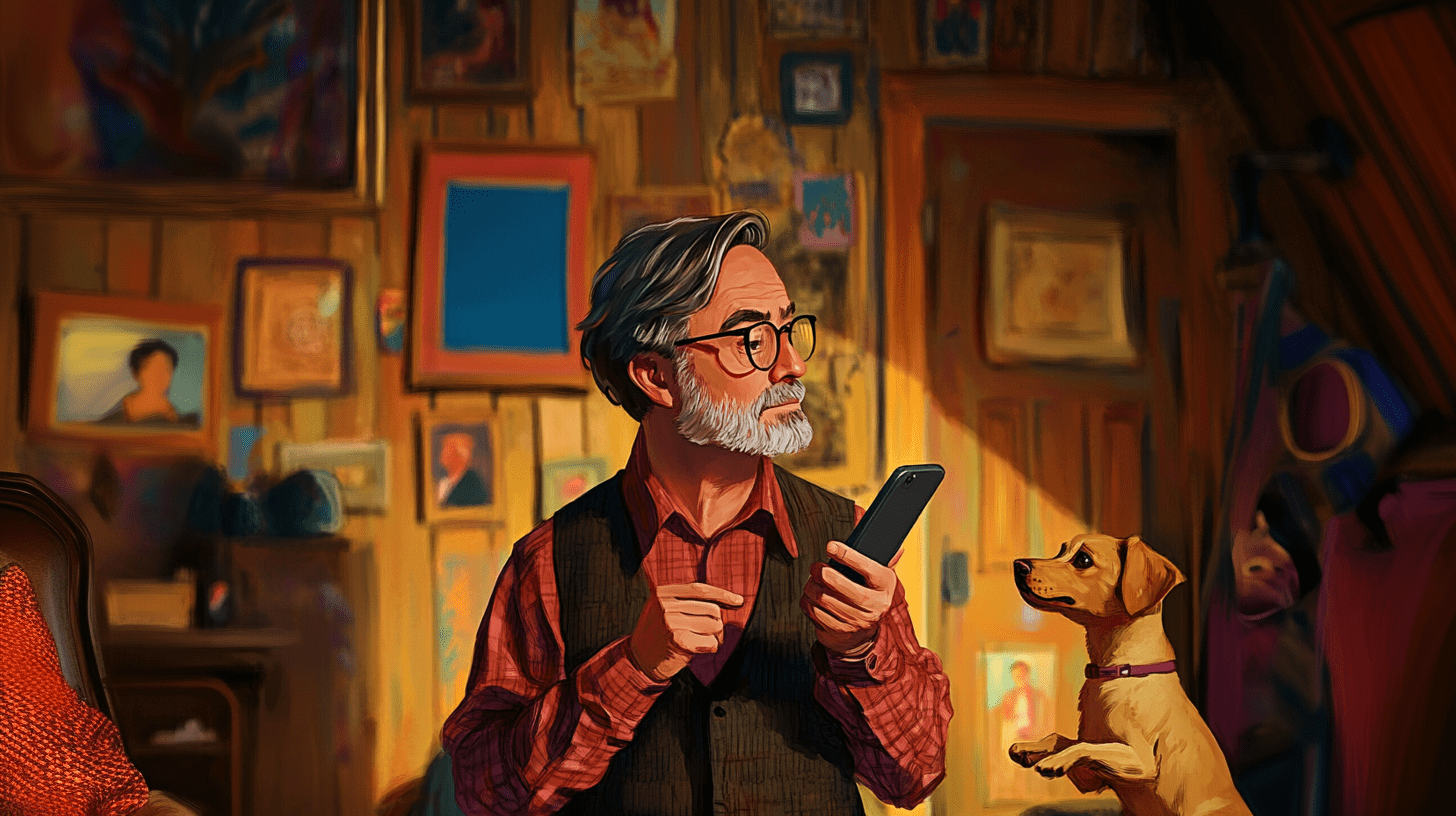20 TED talks that Refuel your MOJO
July 29, 2015
Marketing is all about reinvention. Every day, every project you do is about trying something new and pushing the boundaries, but it takes a lot of creative energy to keep the campaigns going which can deplete quickly if you don’t keep your inspiration going. Everyone needs to kick back sometimes and replenish their creative juices.
One of the best ways to embrace a new paradigm or look at things a new way is to listen to amazing TED talks.
If you’re feeling a little jaded here is a great list of 20 TED talks that are guaranteed to give you back your Mojo in no time at all.
Chip Kidd: The art of first impression in design, and in life
Book designer Chip Kidd knows all too well how often we judge things by first appearances. In this hilarious, fast-paced talk, he explains the two techniques designers use to communicate instantly — clarity and mystery — and when, why and how they work. He celebrates beautiful, useful pieces of design, skewers less successful work, and shares the thinking behind some of his own iconic book covers.
Tony Fadell: The Secret of Design is … Noticing
As human beings, we get used to “the way things are” really fast. But for designers, the way things are is an opportunity … Could things be better? How? Why? What is your responsibility? In this funny, breezy talk, the man behind the iPod and the Nest thermostat shares some of his tips for noticing — and driving — change.
Jimmy Nelson: Gorgeous Portraits of the World’s Vanishing People
When Jimmy Nelson traveled to Siberia to photograph the Chukchi people, elders told him: “You cannot photograph us. You have to wait, you have to wait until you get to know us, you have to wait until you understand us.” In this gorgeously photo-filled talk, join Nelson’s quest to understand — the world, other people, himself — by making astonishing portraits of the world’s vanishing tribes and cultures.
Roman Mars: Why city flags are the worst designed things you have never noticed
Roman Mars is obsessed with flags — and after you watch this talk, you might be, too. These ubiquitous symbols of civic pride are often designed, well, pretty terribly. But they don’t have to be. In this surprising and hilarious talk about vexillology — the study of flags — Mars reveals the five basic principles of flag design and shows why he believes they can be applied to just about anything.
Nick Bostrom: What Happens When our Computers Get Smarter than we are
https://www.ted.com/talks/nick_bostrom_what_happens_when_our_computers_get_smarter_than_we_are
Artificial intelligence is getting smarter by leaps and bounds — within this century, research suggests, a computer AI could be as “smart” as a human being. And then, says Nick Bostrom, it will overtake us: “Machine intelligence is the last invention that humanity will ever need to make.” A philosopher and technologist, Bostrom asks us to think hard about the world we’re building right now, driven by thinking machines. Will our smart machines help to preserve humanity and our values — or will they have values of their own?
Dave Isay: Everyone Around you has a Story the World Needs to Hear
https://www.ted.com/talks/dave_isay_everyone_around_you_has_a_story_the_world_needs_to_hear
Dave Isay opened the first StoryCorps booth in New York’s Grand Central Terminal in 2003 with the intention of creating a quiet place where a person could honor someone who mattered to them by listening to their story. Since then, StoryCorps has evolved into the single largest collection of human voices ever recorded. His TED Prize wish: to grow this digital archive of the collective wisdom of humanity. Hear his vision to take StoryCorps global — and how you can be a part of it by interviewing someone with the StoryCorps app.
Linda Hill: How to Manage for Collective Creativity
https://www.ted.com/talks/linda_hill_how_to_manage_for_collective_creativity
What’s the secret to unlocking the creativity hidden inside your daily work, and giving every great idea a chance? Harvard professor Linda Hill, co-author of “Collective Genius,” has studied some of the world’s most creative companies to come up with a set of tools and tactics to keep great ideas flowing — from everyone in the company, not just the designated “creatives.”
Marc Kushner: Why the Buildings of the Future will be Shaped by you
https://www.ted.com/talks/marc_kushner_why_the_buildings_of_the_future_will_be_shaped_by_you
“Architecture is not about math or zoning — it’s about visceral emotions,” says Marc Kushner. In a sweeping — often funny — talk, he zooms through the past thirty years of architecture to show how the public, once disconnected, have become an essential part of the design process. With the help of social media, feedback reaches architects years before a building is even created. The result? Architecture that will do more for us than ever before.
Tom Wujec: Got a Wicked Problem? First tell me how you make toast
https://www.ted.com/talks/tom_wujec_got_a_wicked_problem_first_tell_me_how_you_make_toast
Making toast doesn’t sound very complicated — until someone asks you to draw the process, step by step. Tom Wujec loves asking people and teams to draw how they make toast, because the process reveals unexpected truths about how we can solve our biggest, most complicated problems at work. Learn how to run this exercise yourself, and hear Wujec’s surprising insights from watching thousands of people draw toast.
Zeynep Tufekci: How the internet has made social change easy to organize and hard to win
https://www.ted.com/talks/zeynep_tufekci_how_the_internet_has_made_social_change_easy_to_organize_hard_to_win
Today, a single email can launch a worldwide movement. But as sociologist Zeynep Tufekci suggests, even though online activism is easy to grow, it often doesn’t last. Why? She compares modern movements — Gezi, Ukraine, Hong Kong — to the civil rights movement of the 1960s, and uncovers a surprising benefit of organizing protest movements the way it happened before Twitter.
Ricardo Semler: How to lead a company with no rules
https://www.ted.com/talks/ricardo_semler_radical_wisdom_for_a_company_a_school_a_life
What if your job didn’t control your life? Brazilian CEO Ricardo Semler practices a radical form of corporate democracy, rethinking everything from board meetings to how workers report their vacation days (they don’t have to). It’s a vision that rewards the wisdom of workers, promotes work-life balance — and leads to some deep insight on what work, and life, is really all about. Bonus question: What if schools were like this too?
Matthieu Ricard: How to let altruism be your guide
https://www.ted.com/talks/matthieu_ricard_how_to_let_altruism_be_your_guide
What is altruism? Put simply, it’s the wish that other people may be happy. And, says Matthieu Ricard, a happiness researcher and a Buddhist monk, altruism is also a great lens for making decisions, both for the short and long term, in work and in life.
Haas & Hann: How painting can transform communities
https://www.ted.com/talks/haas_hahn_how_painting_can_transform_communities
Artists Jeroen Koolhaas and Dre Urhahn create community art by painting entire neighborhoods, and involving those who live there — from the favelas of Rio to the streets of North Philadelphia. What’s made their projects succeed? In this funny and inspiring talk, the artists explain their art-first approach — and the importance of a neighborhood barbecue.
Erin McKean: Go ahead make up new words
https://www.ted.com/talks/erin_mckean_go_ahead_make_up_new_words
In this fun, short talk from TEDYouth, lexicographer Erin McKean encourages — nay, cheerleads — her audience to create new words when the existing ones won’t quite do. She lists out 6 ways to make new words in English, from compounding to “verbing,” in order to make language better at expressing what we mean, and to create more ways for us to understand one another.
Bruno Torturra: Got a Smartphone? Start broadcasting
https://www.ted.com/talks/bruno_torturra_got_a_smartphone_start_broadcasting
In 2011, journalist Bruno Torturra covered a protest in São Paulo which turned ugly. His experience of being teargassed had a profound effect on the way he thought about his work, and he quit his job to focus on broadcasting raw, unedited experiences online. In this fascinating talk, he shares some of the ways in which he’s experimented with livestreaming on the web, and how in the process he has helped to create a very modern media network.
Aakash Odedra: A dance in a hurricane of paper, wind and light
https://www.ted.com/talks/aakash_odedra_a_dance_in_a_hurricane_of_paper_wind_and_light
Choreographer Aakash Odedra is dyslexic and has always felt that his best expression comes through movement. “Murmur” is his ode to that experience, teaming up with co-creators Lewis Major and Ars Electronica Futurelab. Watch him spin his way through the center of a storm, as pages of books take flight all around him.
Frans Lanting: Photos that give a voice to the Animal Kingdom
https://www.ted.com/talks/frans_lanting_photos_that_give_voice_to_the_animal_kingdom
Nature photographer Frans Lanting uses vibrant images to take us deep into the animal world. In this short, visual talk he calls for us to reconnect with other earthly creatures, and to shed the metaphorical skins that separate us from each other.
Marc Abrahams: A science award that makes you laugh, then think
https://www.ted.com/talks/marc_abrahams_a_science_award_that_makes_you_laugh_then_think
As founder of the Ig Nobel awards, Marc Abrahams explores the world’s most improbable research. In this thought-provoking (and occasionally side-splitting) talk, he tells stories of truly weird science — and makes the case that silliness is critical to boosting public interest in science.
Susan Etlinger: What do we do with all this big data
https://www.ted.com/talks/susan_etlinger_what_do_we_do_with_all_this_big_data
Does a set of data make you feel more comfortable? More successful? Then your interpretation of it is likely wrong. In a surprisingly moving talk, Susan Etlinger explains why, as we receive more and more data, we need to deepen our critical thinking skills. Because it’s hard to move beyond counting things to really understanding them.
Sally Kohn: Don’t like clickbait? Don’t click
https://www.ted.com/talks/sally_kohn_don_t_like_clickbait_don_t_click
Doesn’t it seem like a lot of online news sites have moved beyond reporting the news to openly inciting your outrage (and your page views)? News analyst Sally Kohn suggests — don’t engage with news that looks like it just wants to make you mad. Instead, give your precious clicks to the news sites you truly trust.
Simon Sinek: Why good leaders make you feel safe
https://www.ted.com/talks/simon_sinek_why_good_leaders_make_you_feel_safe
What makes a great leader? Management theorist Simon Sinek suggests, it’s someone who makes their employees feel secure, who draws staffers into a circle of trust. But creating trust and safety — especially in an uneven economy — means taking on big responsibility.
After getting your mojo back and you’re itching to see a TED-style talk in person, you can register for INBOUND 2015 or maybe even give one.
If you have TED talks that inspire you, then paste them below so others can enjoy.
 Talk to a person
Talk to a person


